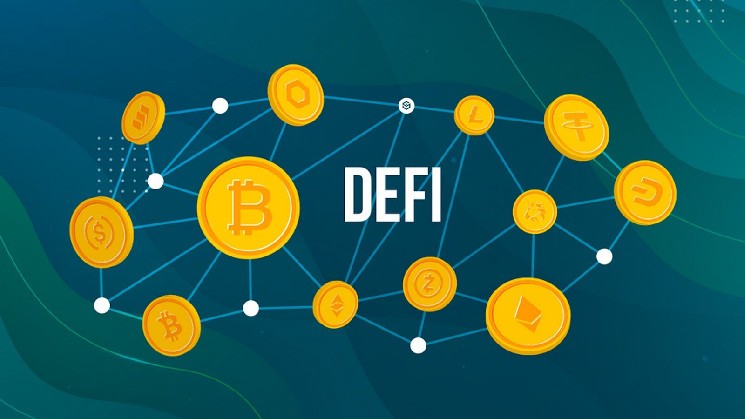How DeFi Protocols are Addressing the Challenges of MEV

Miner Extractable Value (MEV) is a strategy that miners can use to make more money when validating transactions. This works by reorganizing, including, or excluding transactions in a block.
When a transaction is sent it waits in line with other transactions, and miners get to pick which transactions go into the next block on the blockchain.
Some transactions have higher tips, so miners can make extra money by picking those first. It’s like choosing the biggest pieces of candy from a bag. While it helps miners earn more, it can sometimes make the system less fair.
Additionally, there are some problems with this approach that have a major impact on decentralization, blockchain security, and overall network performance.
The problem with MEV
MEV is derived from the fact that miners and validators hold a unique location in the blockchain. Because they can control the order of transactions in a block, they can engage in front-running, which involves inserting transactions ahead of pending ones in order to profit from projected market movements. Another prevalent tactic is sandwich trading, which involves placing buy and sell orders around a huge transaction to manipulate the asset price.
When it comes to lending platforms, there’s opportunities for miners to make money using the MEV method. Through lending platforms, users can borrow and lend crypto via smart contracts. In some cases, borrowers won’t have enough collateral to back up their loans, this is known as being “underwater”. When this happens, the loan needs to be liquidated, which means that the remaining collateral is sold off to pay back the loan.
Miners can use the MEV method to benefit from liquidations in the following way: When a loans needs to be liquidated, anyone can step in and liquidate the loan. This is usually done by “searchers”, users or bots who constantly scan the blockchain for loans that need liquidation. Once a searcher finds a loan that is underwater, they race to be the one to liquidate it since they ear a reward for doing so.
Searchers compete with each other to be the first to liquidate these positions and they do this by trying to get their transactions included in the next block as quickly as possible. To improve the odds of this, they might even pay higher fees to miners, hoping the miners will prioritize their transaction over others.
However, there are some downsides to this race for searchers to liquidate transactions. Firstly, it can increase costs for everyone involved, with protocols potentially having to pay higher fees and regular users facing higher transaction costs (due to searchers paying higher fees to give their transactions priority over others).
Additionally, this strategy reduces the overall fairness because only the users with high computational power and resources can profit consistently from this method. This centralizes the benefits in the hands of a few powerful players, going against the decentralized nature of blockchain technology.
MEV is not just theoretical. On Aave and Compound on Ethereum, nearly $150M in liquidation incentives have gone to miners rather than the protocols or their users. This is what MEV does to operational costs and user experience in DeFi.
Existing approaches to mitigate issues with MEV
To solve the MEV problem, various solutions have been built. One of them is Flashbots’ MEV-Boost which tries to mitigate MEV through private transaction ordering. Flashbots allows searchers to bid for transaction inclusion directly with miners, thus reducing the chaos for block space and the associated costs. This has been shown to reduce some inefficiencies but the underlying MEV extraction problem remains.
Pyth Network, which provides real-time market data for on-chain applications, recently launched Express Relay. This new service eliminates MEV and reduces costs for DeFi protocols and users. Governed by the Pyth DAO, Express Relay connects DeFi protocols directly to a network of searchers through protocol-controlled auctions for high value transactions like liquidations.
Express Relay works by doing off-chain priority auctions where searchers bid on the right to do high value ops. This bypasses miners’ ability to extract MEV by not being in the middle of determining transaction order. By centralizing and aggregating transaction opportunities across multiple protocols and blockchains, Express Relay eliminates the time and cost of negotiating and integrating with individual protocols.
Express Relay has many benefits; such as reducing operational costs for DeFi protocols so they can allocate resources more efficiently. That means lower costs for users and a more fair DeFi ecosystem. Express Relay also enables faster deployment for new protocols by providing a pre-integrated network of searchers so they can bootstrap their liquidation needs.
Several DeFi protocols, including Synthetix, Zerolend, Ionic and others have already integrated with Express Relay and are seeing major benefits. They’ve seen significant cost savings and performance improvements. Protocol developers have said Express Relay is quite easy to integrate and have made their protocol more efficient.
Another solution is Chainlink’s Fair Sequencing Services (FSS). Chainlink FSS focuses on fair transaction ordering to prevent front-running and other MEV strategies. It provides a fair and transparent transaction sequencing mechanism so transactions are processed in the order they are received and can’t be reordered by miners or validators for profit.
The benefits of using Chainlink FSS are many, for example it increases transaction fairness and transparency and a more decentralized and fair DeFi ecosystem. Several protocols have already used Chainlink FSS to process transactions and it’s working to mitigate MEV issues.
The future of DeFi without MEV
Widespread adoption these solutions could change the DeFi landscape. By eliminating or reducing MEV these solutions increase fairness and decentralization, two of the core principles of blockchain. Lower operational costs and better user experience are the immediate benefits but the long term implications are even bigger. A DeFi ecosystem without MEV can lead to more innovation and competition among protocols and a more diverse financial landscape.
Miner Extractable Value (MEV) creates big problems for DeFi, such as it’s costs, fairness and decentralization. But solutions like Pyth Network’s Express Relay and Chainlink’s Fair Sequencing Services (FSS) are the way to mitigate those. By removing the extractive role of miners in transaction ordering those solutions will enable a more efficient, fair and competitive DeFi. As the blockchain and DeFi space moves forward, adopting those solutions will be key to the sustainability and growth of DeFi.
The war on MEV is not over but Express Relay and Chainlink FSS is a big step in the right direction. Those solutions show that technology can solve complex problems and make DeFi better for everyone. By adopting those solutions the DeFi community can look forward to a world where fairness, transparency and efficiency is the new normal and new opportunities for growth and innovation in DeFi.




 Bitcoin
Bitcoin  Ethereum
Ethereum  Tether
Tether  USDC
USDC  Dogecoin
Dogecoin  TRON
TRON  Cardano
Cardano  Stellar
Stellar  Chainlink
Chainlink  Hedera
Hedera  Bitcoin Cash
Bitcoin Cash  Litecoin
Litecoin  LEO Token
LEO Token  Monero
Monero  Cronos
Cronos  Dai
Dai  Ethereum Classic
Ethereum Classic  OKB
OKB  Algorand
Algorand  VeChain
VeChain  Cosmos Hub
Cosmos Hub  Gate
Gate  KuCoin
KuCoin  Stacks
Stacks  Tezos
Tezos  Theta Network
Theta Network  IOTA
IOTA  Tether Gold
Tether Gold  Zcash
Zcash  TrueUSD
TrueUSD  NEO
NEO  Polygon
Polygon  Decred
Decred  Dash
Dash  Ravencoin
Ravencoin  Basic Attention
Basic Attention  Qtum
Qtum  Zilliqa
Zilliqa  0x Protocol
0x Protocol  Synthetix Network
Synthetix Network  Holo
Holo  Siacoin
Siacoin  DigiByte
DigiByte  Enjin Coin
Enjin Coin  Ontology
Ontology  Nano
Nano  Status
Status  Hive
Hive  Waves
Waves  Lisk
Lisk  Steem
Steem  Numeraire
Numeraire  Pax Dollar
Pax Dollar  BUSD
BUSD  Huobi
Huobi  NEM
NEM  OMG Network
OMG Network  Bitcoin Gold
Bitcoin Gold  Ren
Ren  Bitcoin Diamond
Bitcoin Diamond  Augur
Augur